Basic counting skills Normal Math Worksheets for Ages 5-8
5 filtered results
-
From - To
Unlock your child's potential with our Normal Math Worksheets focusing on Basic Counting Skills for ages 5-8! Designed for young learners, these engaging worksheets help children develop essential counting abilities through entertaining activities and exercises. Whether they’re learning to count by 1s, 2s, 5s, or 10s, our worksheets provide a comprehensive and fun approach to mastering basic math skills. Perfect for parents and educators, these printable resources are ideal for fostering a love of math and ensuring a solid foundation in counting. Visit Kids Academy to start nurturing your child's numerical confidence today!
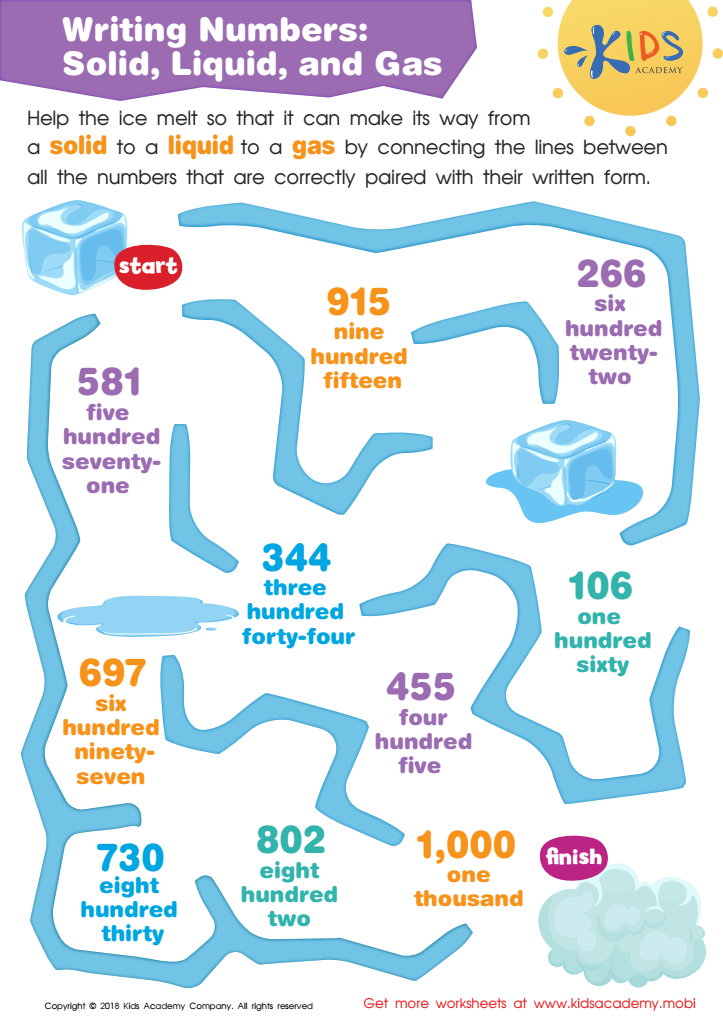

Solid, Liquid, and Gas Writing Numbers Worksheet
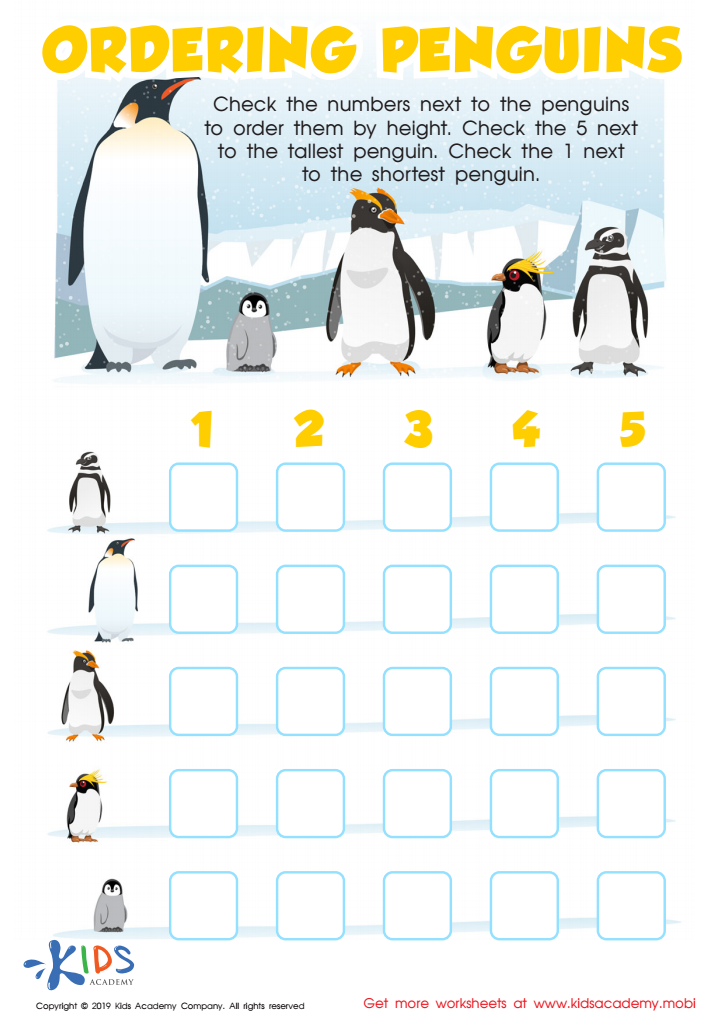

Ordering Penguins Worksheet
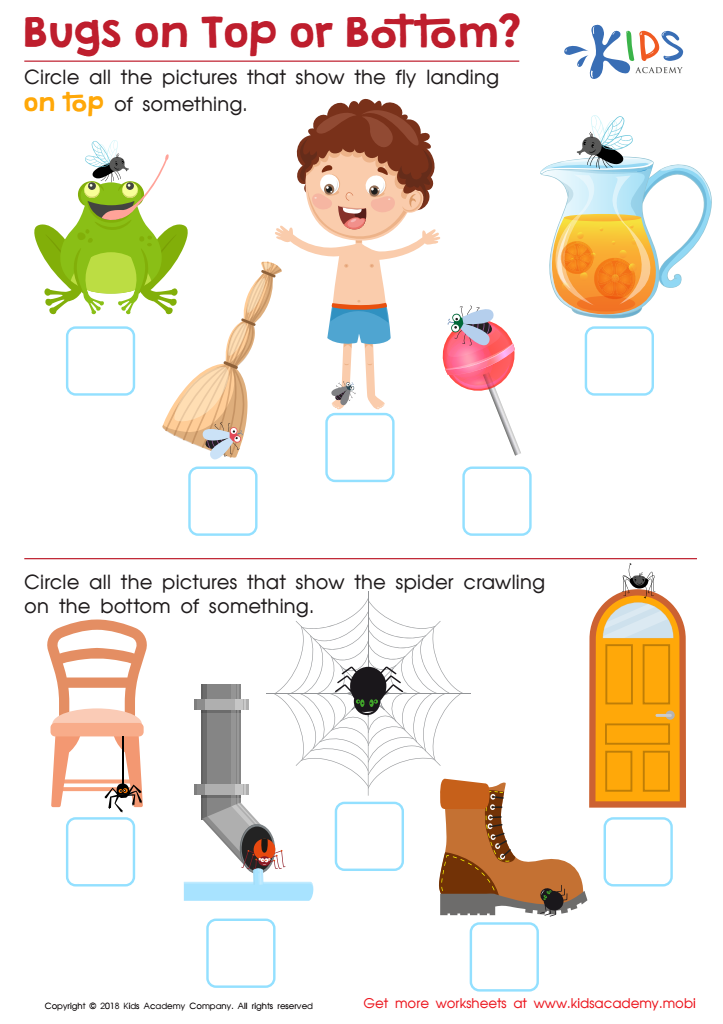

Bugs on Top or Bottom? Worksheet
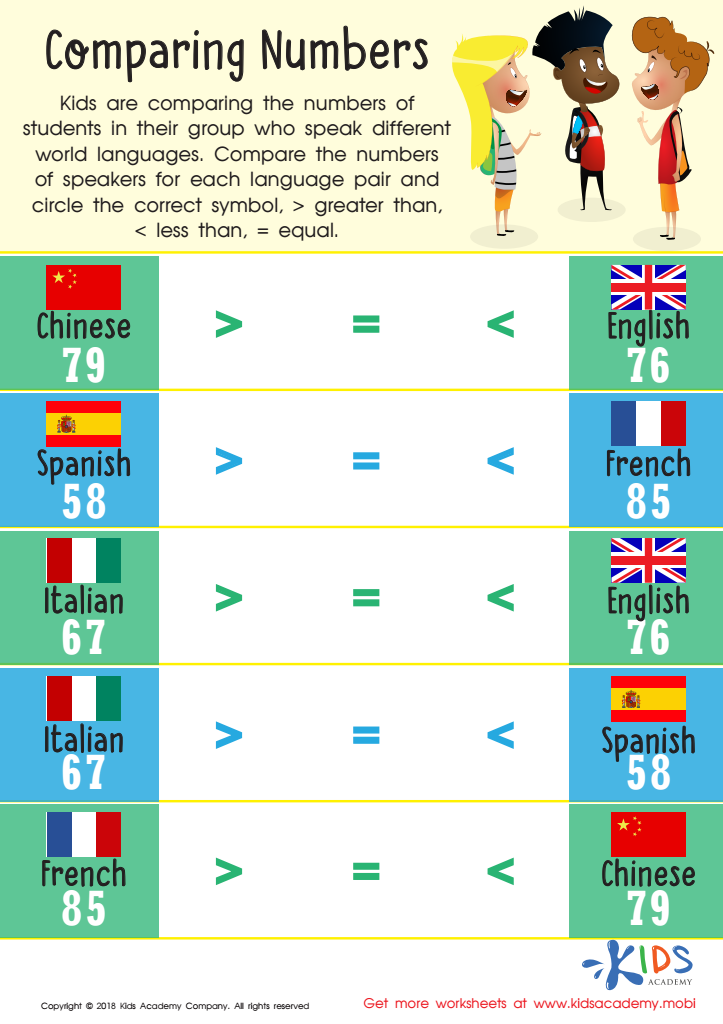

Comparing Numbers Worksheet for 1st Grade
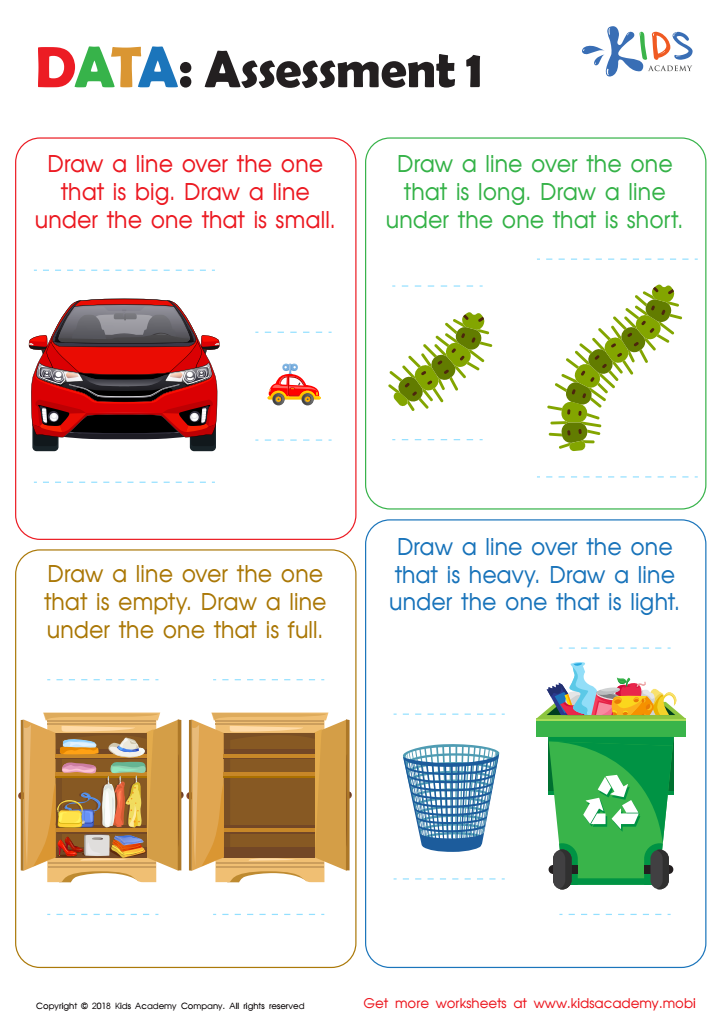

Data: Assessment 1 Worksheet
Basic counting skills form the bedrock of mathematical understanding, especially for children aged 5-8. Parents and teachers should prioritize these skills for several compelling reasons.
Firstly, counting provides the foundation for all future math learning. It helps children grasp the concept of quantity, number sense, and relationships between numbers. This understanding is crucial as it lays the groundwork for more complex mathematical operations like addition, subtraction, multiplication, and division.
Secondly, mastery of basic counting enhances cognitive development. It aids in improving memory, attention, and problem-solving skills. As children engage with counting, they learn to recognize patterns and sequences, which are critical not only in math but also in reading and science.
Moreover, early math skills are strong predictors of later academic success. Research consistently shows that children who enter kindergarten with strong counting abilities perform better academically in the long run.
Teachers and parents need to foster a positive math environment. Encouraging simple activities like counting objects, playing number-related games, or reading counting books can make a significant difference.
In essence, nurturing basic counting skills is not just about learning numbers—it's about building a foundation for lifelong learning and cognitive development. Prioritizing these skills ensures that children are well-equipped for future academic challenges and everyday problem-solving.
 Assign to My Students
Assign to My Students






















